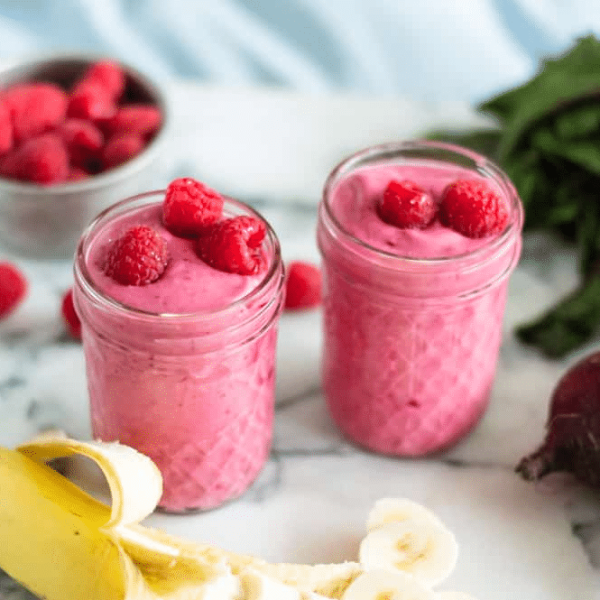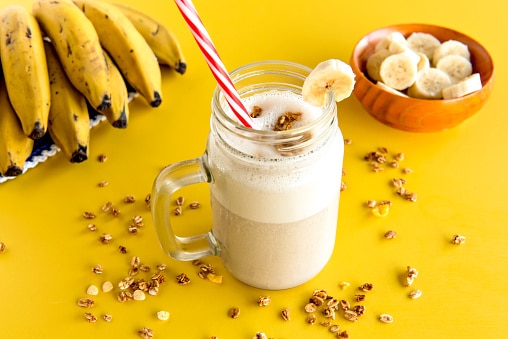
The benefits of fruit smoothies are endless. They add so much nutrition to your daily diet. The components must be considered, however. To stay satisfied, ensure your diet balances protein, carbohydrate, and fat ingredients.
It’s also important to know the calorie intake and content of the fruit smoothies, but many factors must be considered, such as the type of fruit, milk, and ice cream used.
A calorie is a unit of measurement used in the food industry. It’s important to understand why it matters because e calorie is the root of all obesity and weight issues.
A calorie is composed of one number, called the energy content, multiplied by six so that a1000 calories would have an energy value of 12000kj. That’s about the same as a ton of coal!
So if we want to eat 1000 calories and burn 1000 kcal over 24 hours, we would need 2600 kcal or 6600kj from our diet to achieve this! This 1200kj increase in energy expenditure comes from your total calorie and expended caloric intake.
The banana is one of the most popular smoothie ingredients; a medium-sized banana has about 140 calories, making it one of the higher calorie-dense fruits. Other well-liked fruits that are good for smoothies and have fewer calories are:
Calorie count per 100g
For other ingredients usually used in making a fruit smoothie, we have listed the calorie count per 100 grams.

So if you’re in a calorie count, this list is perfect for you!
Strawberry Oat Smoothie is low in calories and provides various nutrients essential for maintaining a healthy weight. The smoothie has a light texture and is enjoyable to drink. It is a great choice for those looking for a low-calorie smoothie option.
Blueberry Beet Smoothie is low in calories but a great way to get your daily allotment of fibre, vitamin C, and other beneficial nutrients. The blueberry provides the sweetness and tartness that makes it stand out from other smoothies. The beet gives this smoothie its desired bitterness and crunch.
Apple, spinach, and lime smoothies are low in caloric because they are packed with healthy nutrients. A single cup of these smoothies has about 108 calories, less than most fruit smoothies.
Blueberry Chia Smoothie is low in calories because it is made with chia seeds. Chia seeds are a high-fat, high-carbohydrate food that can help control weight or promote healthy eating habits. Blueberry Chia Smoothie has about 95 calories per cup, making it a lower-calorie smoothie than other smoothies on this list.
Honeydew melon is a low-calorie fruit that is completely water soluble, which means you can drink it straight up or mix it into a smoothie. Kiwifruit is also low-calorie and has a great flavour profile. These fruits are perfect for making healthy smoothies that are filling and satisfying.
There’s something about a smoothie that begs to be healthy and nutritious. And that’s exactly what you’ll find in this vegan raspberry peanut butter smoothie. This delicious treat only has 190 calories, making it a great choice for those looking to keep their weight off. Plus, the yoghurt gives it a thick and creamy texture, which makes it even more delicious.
Here are some tips for making this recipe:
When making fruit juice, it is important to have an accurate calorie count. By knowing what fruits and vegetables contain the most calories, you can make sure you are getting the right number of cups of juice.
For example, in one cup of apples there are 265 calories. In contrast, oranges have only 117 calories in one cup. Knowing this information lets, you make informed decisions when choosing your fruit juice.
Was this article helpful? Let us know in the comments.
Smoothies are a great way to start your day, as they are filling and healthy. However, some people believe that having a smoothie for breakfast is not always healthy. Some think it may be too acidic, sweet, or thick. Therefore, deciding if a smoothie is right for you can be hard.
Smoothies are a great way to enjoy fruit while keeping your bill low. Whether you add ice cream, yoghurt, or fruit, smoothies make a delicious and healthy snack option.
In tested and clinical trials, smoothie diners reported that they experienced no ill effects from drinking smoothies as long as they followed the recipe closely. The only exception was when the smoothie contained too much sugar, which can result in diabetes.
The benefits of drinking smoothies go beyond just weight loss. Studies have shown that Smoothies can help improve blood sugar control and protect against heart disease. Smoothies are an excellent choice if you’re looking for a healthy snack option that also packs a punch.
Yes! You can keep smoothies for up to three months in the freezer. They are ideal for preparing in advance and enjoying every week.
Pearl Lemon Juice is a part of the Pearl Lemon Group. We also own Bubble Tea, Matcha, and Coffee beverage café’s in Fulham and Marleybone!
© All Rights Reserved | Company Number: 10411490 | VAT Number: 252 7124 23 | Sitemap